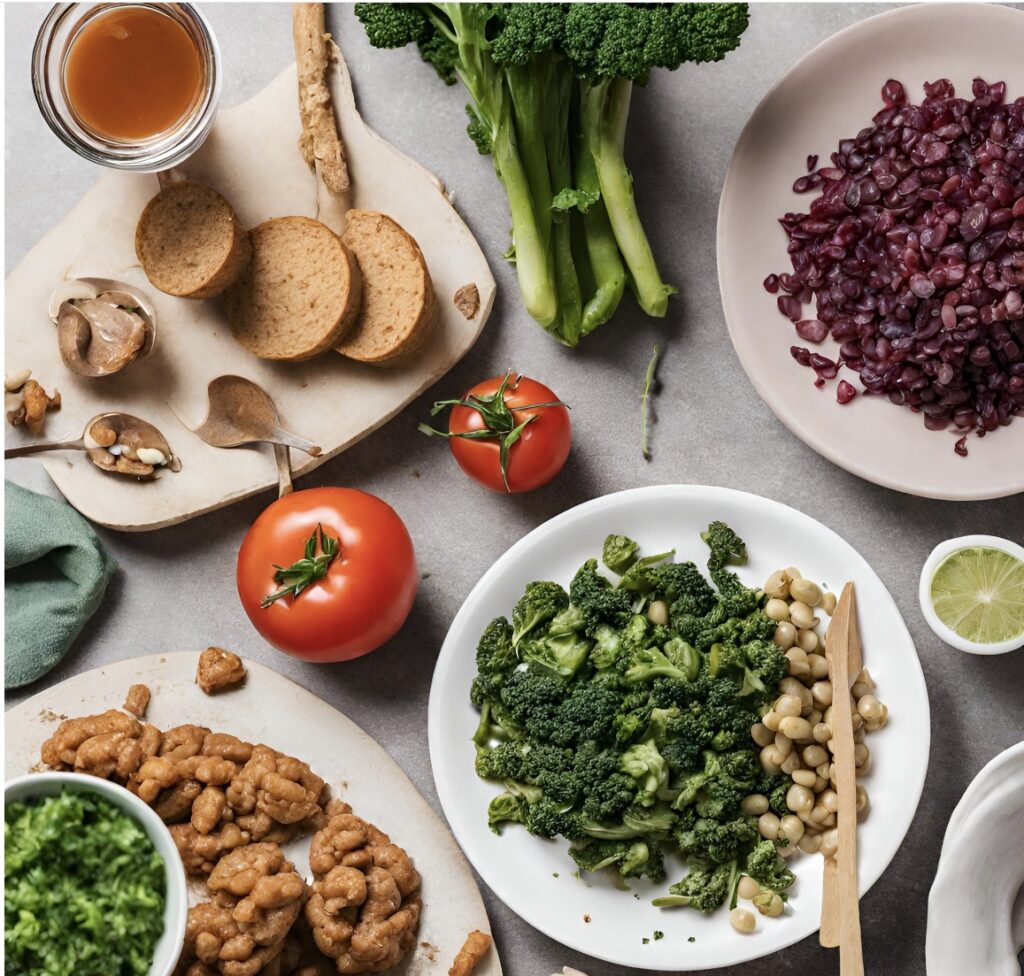What to Eat and Drink
Essential Foods for a Vibrant Vegan Diet
The vegan lifestyle, characterized by a compassionate and plant-based approach to nutrition, is gaining momentum for its health benefits and positive environmental impact. Embracing a vegan diet means abstaining from all animal products, including meat, dairy, and eggs. To thrive on this journey, it’s crucial to focus on a balanced and nutrient-dense array of plant-based foods. Here’s a comprehensive guide to the advised foods for a vibrant vegan diet:
1. Abundant Fruits and Vegetables: The Heart of the Plate
The foundation of a healthful vegan diet is the wide variety of fruits and vegetables, which provide an abundance of vital vitamins, minerals, fiber, and antioxidants. These superfoods made entirely of plants not only improve general health but also protect against long-term illnesses. Every mouthful is a celebration of health and energy, from nutrient-dense leafy greens and cruciferous vegetables to the antioxidant-rich enticement of berries, the sweet delight of citrus fruits, and the nutritious richness of sweet potatoes.
2. Wholesome Grains: A Sustained Source of Energy
A well-rounded vegan diet must include whole grains since they provide vital nutrients and maintain energy levels. These fiber-rich, complex carbs are essential for fostering fullness and a balanced diet. Experimenting with different possibilities within this category, including adding brown rice, quinoa, whole wheat pasta, oats, barley, and whole grain bread, guarantees a wide range of advantages. These grains support the tenets of a health-conscious vegan living by supplying sustained energy and strengthening the nutritional foundation with their nutrient-rich profile.
3. Protein-Packed Legumes: Building Blocks of Health
Plant-based legumes are rich in protein and provide a wealth of important minerals, fiber, and plant-based protein. They are considered the foundation of a balanced vegan diet. Chickpeas, kidney beans, black beans, edamame, and lentils are adaptable ingredients that may be used to a variety of dishes, including savory stews, robust soups, and salads. These beans may also be made into delicious spreads, like the well-known hummus. They are vital components that guarantee a well-rounded and appropriate protein basis for people adopting a vegan diet because of their versatility and nutritional richness.
4. Plant-Powered Proteins: A Variety of Options
Plant-based proteins provide a wide range of possibilities to add to the nutritional value of a vegan diet. Plant-based protein sources such as tofu, tempeh, and seitan may be prepared in a variety of ways, such as marinating, grilling, stir-frying, or adding to soups and stews. Nuts and seeds, such as hemp seeds, walnuts, chia seeds, and almonds, balance these out by adding healthy fats along with protein. Including these diverse plant-based proteins guarantees a range of tastes and textures, enhancing the complexity and nutritional worth of your vegan cooking repertoire.

5. Nutrient-Dense Nuts and Seeds: Tiny Powerhouses
Nuts and seeds are unique micronutrient powerhouses, full of fiber, protein, and healthy fats along with an abundance of other vital elements. In addition to being easy snacks, they may be used as a variety of toppings or components to enhance the nutritional value of different recipes. Add a variety of nuts and seeds, including almonds, cashews, chia seeds, flaxseeds, and pumpkin seeds, to your diet to guarantee a nutritional profile that is well-rounded and promotes general health and vigor.
6. Healthy Fats: Balancing Your Macronutrients
A vegan diet that is macronutrient-balanced must include healthy fats, which are essential for brain health, cellular function, and maximum nutrition absorption. Nuts, avocados, coconut oil, and olive oil are excellent providers of mono- and polyunsaturated fats. These can be added to food to offer richness and important nutrients for general health, or used in cooking, dressings, or as tasty toppings.
7. Fortified Foods: Meeting Specific Nutritional Needs
It is important to pay particular attention to some essential elements, such vitamin B12 and vitamin D, when navigating the nutritional terrain of a vegan diet. These vital components, which are mostly present in animal products, can be added to plant-based diets by means of fortified foods. Breakfast cereals, nutritional yeast, and plant-based milks are great options that work as fortified friends to make sure you satisfy your nutritional needs while following a vegan diet.

8. Plant-Based Dairy Alternatives: A World of Choices
The market has responded to the growing popularity of veganism by offering a wide variety of dairy substitutes. It’s easy to get plant-based milks like almond, soy, and oat, as well as vegan cheeses, yogurts, and butter alternatives. To maintain appropriate nutrition in a plant-based diet, it is important to be sure that these substitutes are fortified with vital elements like calcium and vitamin D. Verifying the fortification information on the labels guarantees that these dairy substitutes enhance your total dietary intake.
9. Herbs, Spices, and Flavor Enhancers: Elevating Your Dishes
Spices and herbs serve two purposes: they add flavor to your food and offer a host of health advantages. Incorporating fresh herbs like mint, basil, and cilantro together with spices like cumin, ginger, and turmeric enhances the flavor profile of your food while also adding nutrients. These gourmet additives make your meals tasty and health-promoting, by adding a burst of flavors to your plate and providing advantages for digestion, inflammation, and antioxidants.
A well-balanced vegan diet can provide all the essential nutrients your body needs to thrive. By incorporating a diverse range of plant-based foods, you can nourish yourself while contributing to a more sustainable and compassionate world. Remember to consult with a registered dietitian or healthcare professional for personalized guidance on meeting your specific nutritional needs.


